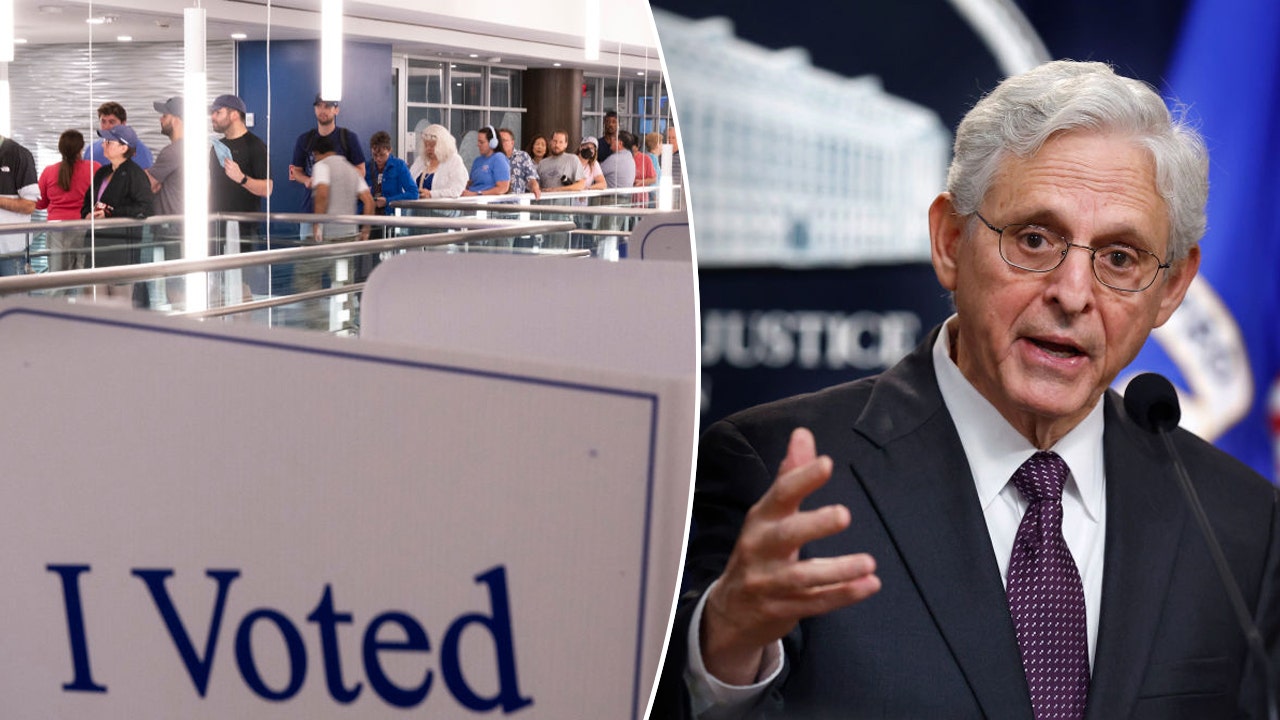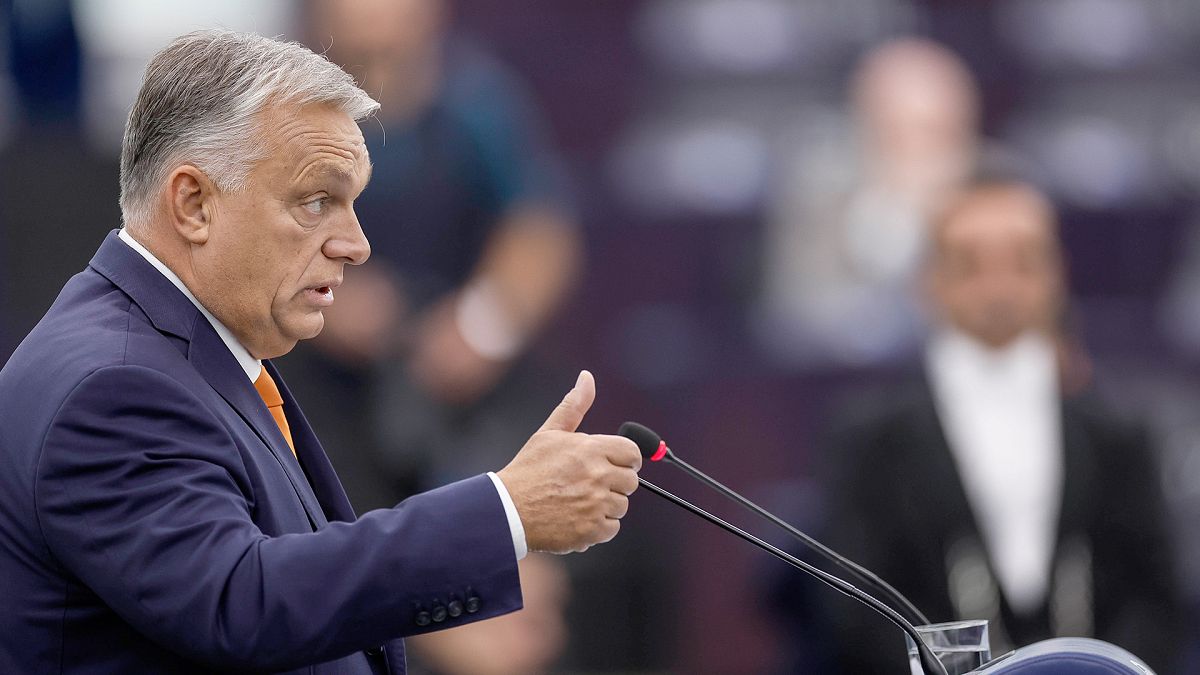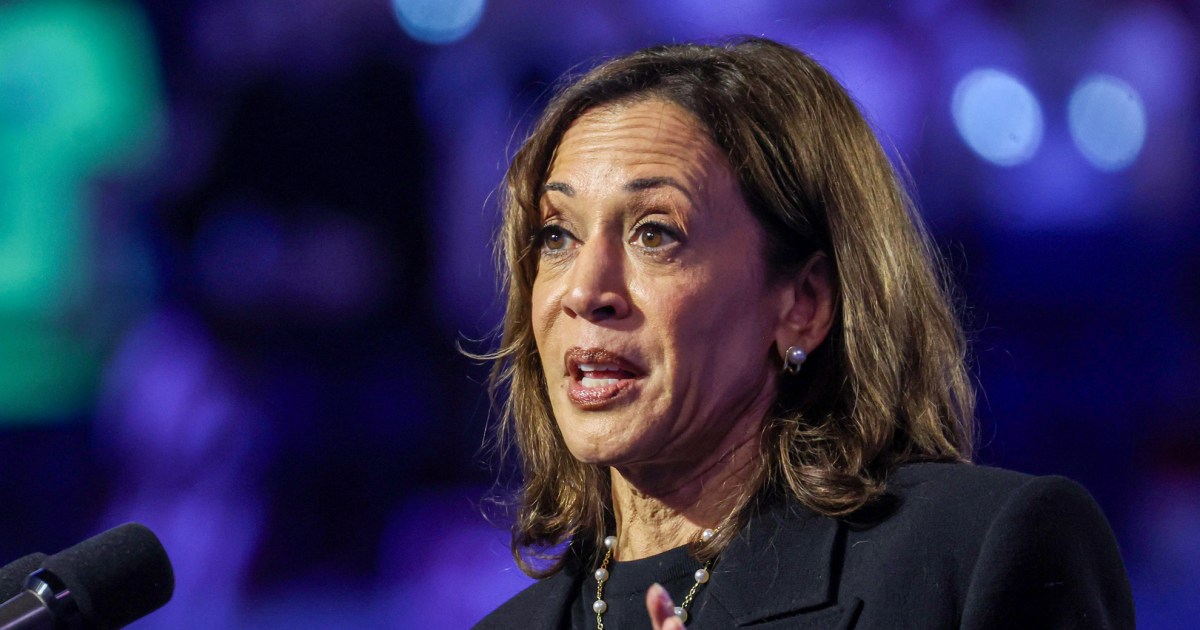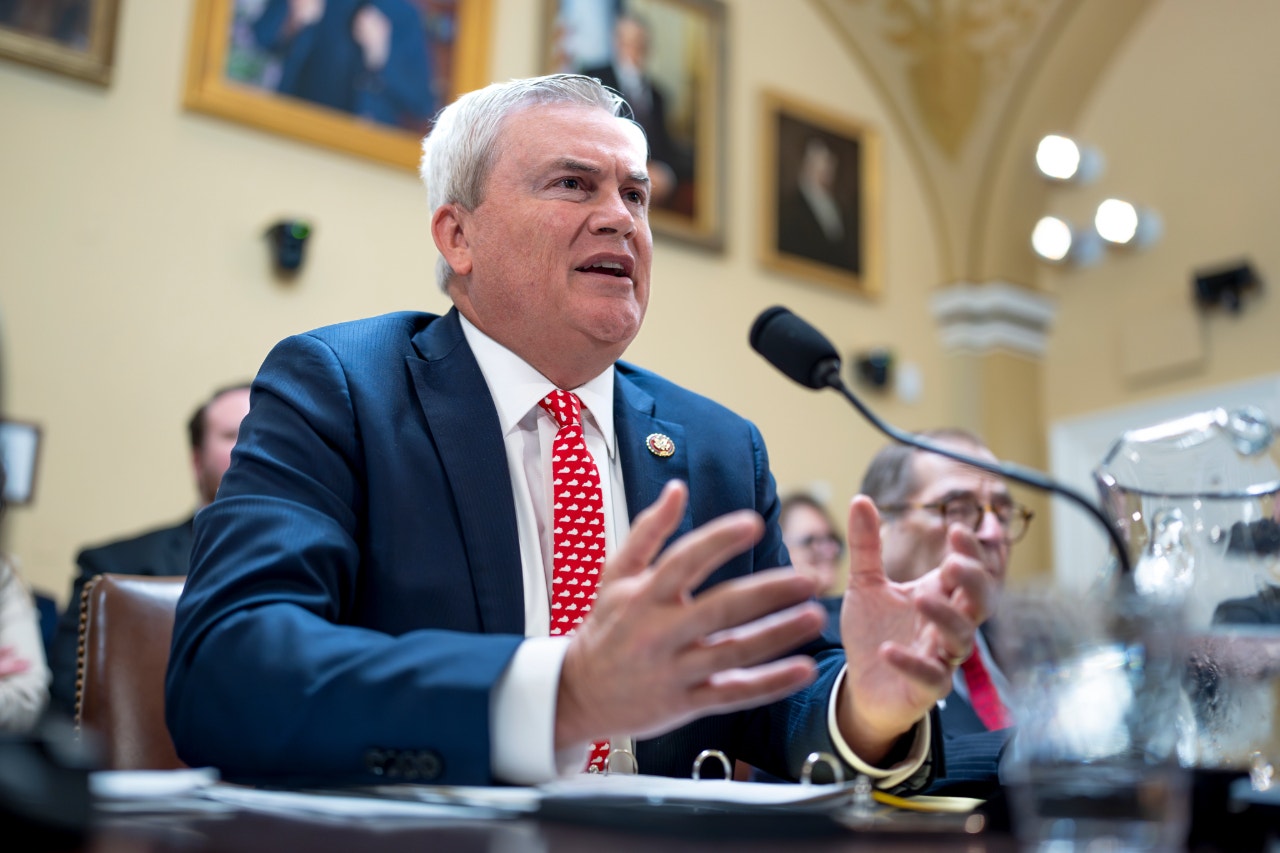Finance
Days after mass layoffs, Spotify’s finance chief is out

Spotify chief financial officer Paul Vogel is leaving his post on Mar. 31, 2024, the company announced yesterday (Dec. 7), saying he is no longer the right fit.
Vogel joined the Swedish streaming service in 2016 as head of investor relations and has been in his current role since 2020. But as the company spent the last two years trying to rein in spending while also funding growth opportunities, “I’ve talked a lot with Paul about the need to balance these two objectives carefully,” Spotify CEO Daniel Ek said. “Over time, we’ve come to the conclusion that Spotify is entering a new phase and needs a CFO with a different mix of experiences.”
A successor for Vogel has not yet been named. Ben Kung, vice president of financial planning and analysis, will take on “additional responsibilities” while the company mounts an external search for Vogel’s permanent replacement.
The decision comes a mere three days after the company announced its third and biggest layoff of 2023 in a bid to become “relentlessly resourceful,” according to Ek. Because most of its streaming earnings end up in the hands of major record labels, Spotify has been struggling to find a consistent path to profitability.
Quotable: Spotify’s expenses and funding “exploded”
“Spotify’s superpower was combining engineering breakthroughs with organisational abilities—it organised creators and copyright owners to build an entirely new economic model that benefited everyone involved. During the boom, it applied these powers to new markets like podcasts, audiobooks and live chat rooms. Its operating expenses and funding for content exploded. It is now sorting out what was built to last and what was built for the bubble.”
—Mason Morfit, partner, CEO, and chief investment officer at ValueAct, to the Financial Times when the activist investor that bought a stake in Spotify in February 2023.
Spotify’s streamlining, by the digits
17%: Share of its global workforce Spotify laid off on Dec. 4
€32 million ($34 million): Spotify’s operating profit for the three months ending Sept. 30—its first profitable quarter in more than a year of loss-making—so the search for a new finance officer comes from a “position of strength,” Ek said
200: Employees fired in June from Spotify’s podcast division—a high-investment area on which the company splurged more than $1 billion. This was after the company already fired 600 people across departments in January.
2: Critically acclaimed podcasts (Heavyweight and Stolen) that Spotify canceled on Dec. 5, as part of its plan to take a step back from original programming. They will run until the end of their current seasons.
Fun fact: Vogel made millions
Less than 24 hours after the latest mass firing, Vogel banked $9.38 million by cashing out 47,859 Spotify shares, according to a Dec. 5 regulatory filing.
Company of interest: Tidal
Jay-Z-backed streamer Tidal yesterday (Dec. 7) announced that it is cutting 10% of its workforce. The downsizing decision is driven by parent company Block’s decision to cap the total workforce at 12,000. Around 40 staffers faced the axe, according to Bloomberg, which broke the news.
Spotify and Tidal aren’t isolated examples. Over the course of 2023, SiriusXM-owned Pandora, SoundCloud, and Amazon Music have all been pruning their workforces for greater efficiency.

Finance
Annual climate finance doubled between 2018 and 2022 but needs to increase at least fivefold to avoid worst consequences of climate change, study shows – CPI

31 October 2024, London – Climate finance is going to be at the center of COP29 negotiations in Baku next month. A new study shows that annual climate finance must increase at least fivefold by 2030 to meet the goals of the Paris Agreement and to avoid the worst consequences of climate change.
The Global Landscape of Climate Finance 2024: Insights for COP29 report, published today by Climate Policy Initiative (CPI), found that climate finance flows reached almost USD 1.5 trillion, having doubled between 2018 and 2022.
However, climate finance currently only represents 1% of global GDP, far short of what is needed. Emerging markets and developing economies (EMDEs) may need around 6.5% of their GDP by 2030 to meet climate goals.
“While global climate finance has made some strides, a much more ambitious, cohesive, and effective approach is essential to address the vast funding gap,” said Barbara Buchner, CPI’s Global Managing Director. “The data from CPI’s Global Landscape report leaves no doubt that investment needs to scale across all fronts—domestically, internationally, and across sectors—to reach our mutual climate goals. COP29 is an opportunity to establish clear, collaborative commitments to finance the transformation needed for a sustainable future.”
CPI’s report further details the cost of inaction, estimating that projected economic losses by 2100 will be five times greater than the climate finance that is needed by 2050 to stay within a 1.5°C warming scenario. The economic impact under a “business-as-usual” scenario will be exponential if climate action is delayed, further exacerbating financial strain on all economies.
Alarmingly, investments in fossil fuels continued to rise globally throughout 2023 and 2024 to surpass USD 1 trillion, despite global commitments to reduce fossil fuel investments. Subsidies for fossil fuel consumption in emerging economies increased fivefold during the same period.
The insights provided in this year’s Global Landscape of Climate Finance 2024, the most comprehensive overview of global climate-related primary investment, are particularly crucial ahead of COP29, which marks a critical juncture for establishing the New Collective Quantified Goal (NCQG) to make finance flows consistent with a pathway towards low greenhouse gas emissions and climate-resilient development.
Several large-scale processes need to occur simultaneously in the next five years to accelerate the scale, speed, and quality of climate finance amid constrained budgets and conflicting political and financial priorities. To enhance the scale and effectiveness of global climate finance, CPI proposes prioritizing the following topics: innovation and replication; targeting and allocation; domestic policies and ownership; and cross-cutting, multi-stakeholder action.
For more information, register for the webinar on Monday, 4 November 2024.
Media contact:
Jana Stupperich
Senior Communications Associate
jana.stupperich@cpiglobal.org
About Climate Policy Initiative
CPI is an analysis and advisory organization with deep expertise in finance and policy. Our mission is to help governments, businesses, and financial institutions drive economic growth while addressing climate change. CPI has offices in Brazil, India, Indonesia, South Africa, the United Kingdom, and the United States.
Finance
Inside Super Micro's wake-up call: After riding the AI wave, the $20 billion tech giant is crashing back to earth amid a financial crisis and family drama

Silicon Valley tech company Super Micro was supposed to be riding high: After flying under the radar for a quarter of a century, the company had ridden the coattails of the recent generative AI boom. The $20 billion manufacturer builds some of the most important hardware used to power the top artificial intelligence models–that is, high-performance servers that house the leading AI chips, including Nvidia’s.
Over the past five years, as the AI boom picked up steam before exploding post-ChatGPT, Super Micro’s shares soared over 3,000% and its reported revenue doubled to $7.12 billion, to earn it a glitzy debut on the Fortune 500. But accounting issues have continued to haunt the company: It settled with the Securities & Exchange Commission in August 2020 over two years’ worth of alleged accounting violations, and then in 2024 short-seller Hindenburg Research claimed Super Micro continued to engage in questionable accounting practices.
And now, things just got even more real. Super Micro’s auditor resigned in the midst of its work with the tech firm, a move generally considered to be one of the reddest of red flags in the financial and investment community. And after Super Micro broke that news to investors, auditor Ernst & Young came back with a World Series grand slam rebuttal.
In a letter to the regulators, EY said it only agreed with the company’s disclosures in the first paragraph, the first sentence of the second paragraph, the third paragraph, the first three sentences of the fourth paragraph, and a few others. That’s it.
“We have no basis to agree or disagree with other statements of the registrant contained therein,” EY wrote to SEC commissioners.
For investors, those can be read as fighting words. Super Micro’s stock tumbled 33% on Wednesday.
Governance expert and Georgetown University associate professor Jason Schloetzer told Fortune this type of resignation is unusual and is consistent with a “noisy withdrawal.”
“It’s pretty clear there are irreconcilable differences between management and the auditor that are severe enough to spill into the public domain,” said Schloetzer. “An auditor resignation is already in red flag territory, so this one will certainly get close scrutiny from capital markets participants and regulatory agencies. Management will have some explaining to do.”
What went down at Super Micro?
The auditor’s response was prompted by the disclosure Super Micro made this week announcing EY’s departure. Critically, Super Micro told investors it “does not currently expect that resolution of any of the matters raised by EY, or under consideration by the Special Committee, as noted below, will result in any restatements of its quarterly reports for the fiscal year 2024 ending June 30, 2024, or for prior fiscal years.” Generally, Super Micro’s disclosure that they don’t think these concerns will prompt them to correct their financials is meant to soothe investors that are skittish about potential accounting problems.
The company formed the special committee in question after EY flagged concerns about its financial reporting to the board’s audit committee last July. In response, the board formed a special committee to investigate—and hired law firm Cooley LLP and forensic accounting firm Secretariat Advisors to probe. As of today, that review remains ongoing, according to Super Micro.
In a statement to Fortune, a Super Micro spokesman said it disagreed with EY and added it is working “diligently” to hire a new auditor. The spokesman emphasized that Super Micro does not believe it will need to issue any restatements or corrections to its financials.
Accounting expert Francine McKenna told Fortune that the EY resignation went beyond the usual quiet exit auditors make when they slip away from an engagement. “There are noisy resignations and then there are resignations that bang a big giant gong—and this is as bad as it can get,” said McKenna, who authors The Dig newsletter.
In its resignation letter, EY wrote that it was no longer able to rely on management and the board’s audit committee, which is supposed to be made up of independent directors who oversee the company for the benefit of shareholders. “When you can’t rely on management, that’s bad,” said McKenna. “If you can’t trust the audit committee, there is something very wrong.”
A Super Micro spokesman told Fortune: “We have announced a first quarter business update call for Tuesday November 5th.” Not ideal timing, given that’s Election Day. Super Micro declined to comment further.
Amy Lynch, former regulator with the SEC and Financial Industry Regulatory Authority, told Fortune it appears EY has “serious concerns about the company and contacted the SEC in order keep themselves from being charged in any subsequent enforcement action.”
“SMCI may very soon find itself under investigation by the SEC for accounting-related fraud, if not already,” said Lynch, founder and president of FrontLine Compliance. “The SEC acts very quickly in these circumstances.”
The SEC did not immediately respond to a request for comment.
EY’s abrupt departure is the latest in a pileup of problems at a company considered a Wall Street darling not that long ago. Super Micro got a warning letter from Nasdaq last month after it failed to file its annual financial report on Aug. 29. The stock was still trading on the tech-heavy exchange, but the company was given a 60-day notice to either pony up a 10-K or submit a plan to regain compliance.
Super Micro got an extension until Nov. 27 to deliver on its fiscal year 2024 audited financial statements. The company also implemented a 10-for-1 forward stock split that took effect Sept. 30, increasing its authorized shares from 100 million to 1 billion. Stock splits are commonly used to make shares more affordable to investors because it lowers the price per share. Nvidia did a split this year also. It can also boost liquidity and flexibility in equity compensation. Super Micro CEO Charles Liang’s salary was revised in 2021 to just a dollar a year and all his comp was converted into performance-based stock options, according to the company, with potential value of $60 million.
What’s up with the short report?
In August, famed short-seller Hindenburg Research hit the company with a 19,000-word short report. It claimed to have found “glaring accounting red flags, evidence of undisclosed related party transactions, sanctions and export control failures” after a three-month investigation. Super Micro described the report as “false and misleading” in a letter to investors.
That was after the SEC previously fined the company $17.5 million for alleged improper accounting from 2015 to 2017. Super Micro paid the fine without admitting or denying the findings. Former chief financial officer Howard Hideshima was also fined in the action—and cofounder and CEO Liang, while not charged with misconduct, had to repay the company $2.1 million in stock profits he received while the accounting errors were occurring—a compensation clawback.
It likely required a lot of heavy lifting from the audit committee. During 2018, the committee met 42 times, 38 of which were special meetings. In 2020, it met 15 times, with 11 special meetings. The grand total for the past three fiscal years is 47 audit committee meetings. On average, according to data from governance benchmarking analytics firm Esgauge, S&P 500 audit committees met about eight times a year for the past three years.
Super Micro: A family affair
The company was founded in September 1993 by board chairman and CEO Liang and his wife, Sara Liu. A third cofounder, Yih-Shyan (Wally) Liaw was involved until January 2018 when he resigned all his positions as the company dealt with regulators following a previous audit committee investigation. But, as of May 2021, Liaw was back, advising Super Micro on development. He returned to full-time employment in August 2022 and rejoined the board in December 2023, according to the company’s most recent proxy report.
The company also involves multiple family relatives in its business entities, based on its disclosures. At least two sisters-in-law work at the company and a third loaned $12.9 million (plus interest) to Liang. The company’s most recent disclosure showed that he owed her $16 million.
Cofounder Sara Liu’s brother, Hung-Fan (Albert), works for the company; Sara Liu’s sister-in-law, Shao Fen (Carly) Kao, works there; Sara Liu’s other sister-in-law, Mien-Hsia (Michelle) Hung, also works there.
In October 2018, Liang personally borrowed the $12.9 million from Chien-Tsun Chang, the spouse of his brother Steve Liang (also Charles Liang’s sister-in-law). Charles needed it to pay back margin loans to two financial institutions that had been secured by Super Micro’s stock, the company’s disclosures state. The loans were called in after Nasdaq suspended the stock from trading on Aug. 23, 2018 after Super Micro failed to file multiple quarterly and annual reports with the SEC. It was delisted from the Nasdaq Global Select Market and quoted on the OTC Market. It was relisted on the exchange on Jan. 14, 2020.
From there, the disclosed inter-company transactions and business relationships get even more complex. Super Micro has entered into a series of agreements with a Taiwan corporation called Ablecom Technology and one of its affiliates, Compuware Technology, according to Super Micro’s financial filings.
Super Micro outsources server design and manufacturing to Ablecom Technology. In fiscal 2023, Super Micro bought $167.8 million in products from Ablecom, and as of June 2023, Super Micro owed Ablecom $36.9 million. Super Micro also paid Ablecom $12.1 million for “design and tooling” in fiscal 2023, according to Super Micro.
There’s another family relationship in that mix. The CEO of Ablecom is Steve Liang, brother of Charles, per Super Micro’s financial disclosures. The complexity intensifies from there—according to Super Micro’s most recent proxy statement, Steve Liang and his family own 28.8% of Ablecom. Charles Liang and his wife Sara Liu own 10.5% of Ablecom. Bill Liang (brother of Steve and Charles) is on Ablecom’s board and is CEO of the other entity involved, Compuware. (Neither Charles Liang nor Super Micro own stock in Compuware and Super Micro doesn’t own stock in Ablecom or Compuware. Ablecom owns less than 50% of Compuware, the company reported.)
Furthermore, Ablecom’s sales to Super Micro make up a “substantial majority” of its net sales, the company disclosed. For the fiscal years ended June 30, 2023, 2022, and 2021, Super Micro bought products from Ablecom totaling $167.8 million, $192.4 million, and $122.2 million, respectively. During the same period, Super Micro owed Ablecom $36.9 million, $46.0 million and $41.2 million, respectively. Super Micro paid Ablecom $12.1 million, $8.3 million, and $8.6 million, respectively, for design services, tooling assets and miscellaneous costs, per the company filings.
Meanwhile, Compuware is a distributor for Super Micro in Taiwan, China, and Australia—and Super Micro outsources power design and manufacturing to Compuware. Compuware’s sales of Super Micro products to other businesses make up a majority of Compuware’s net sales. In fiscal 2023, Super Micro sold $36.3 million in products to Compuware and in June 2023, Compuware owed Super Micro $24.9 million. In fiscal 2023, Super Micro bought $217 million in products from Compuware, and in June 2023, Super Micro owed Compuware $66.2 million. Super Micro paid Compuware $2 million for “design and tooling.”
In addition, Super Micro and Ablecom jointly established Super Micro Asia Science and Technology Park in Taiwan “to manage shared common areas.” Each company contributed $200,000 for a 50% ownership stake in the venture, according to the company’s disclosures.
Super Micro says its maximum financial exposure to Ablecom was $23.7 million in outstanding purchase orders as of June 30, 2023, and Super Micro’s maximum financial exposure to Compuware was $46.8 million in outstanding purchase orders as of June 30, 2023.
Super Micro also disclosed that a sibling of Yih-Shyan (Wally) Liaw, a board member and senior vice president of development, owns approximately 11.7% of Ablecom’s capital stock and 8.7% of Compuware’s capital stock.
For now, Super Micro’s spokesman said it will talk with investors on the Election Day call. But in a September letter to customers and business partners, Liang (the CEO and founder, not his siblings) emphasized the accounting delay that impacted its annual report and the Hindenburg issue wouldn’t impair its ability to deliver goods.
“Importantly, however, when we announced the decision to delay our Annual Report filing, we indicated that based on the work done so far, we don’t anticipate any material changes in our fourth quarter or fiscal year 2024 financial results,” wrote Liang. “This is good news. I continue to have strong confidence in our finance and internal teams.”
Finance
OECD Review on Aligning Finance with Climate Goals

Aligning finance with climate policy goals is crucial for achieving net-zero greenhouse gas emissions and resilience to climate change, as called for by Article 2.1c of the Paris Agreement. Evidence-based policy making and investment decisions towards such alignment need to be informed by robust assessments. To support such efforts, this inaugural OECD Review on Aligning Finance with Climate Goals brings together best-available evidence on three core questions: (i) How is climate alignment of finance assessed? (ii) What do we know about current finance flows and stocks? (iii) What evidence exists on the role of financial sector policies and actions? The report identifies actions policymakers and financial sector stakeholders can take to improve the evidence base and better align finance with climate goals. It further sets out good practices to prevent greenwashing and inaccurate claims of climate alignment.
-

 Movie Reviews1 week ago
Movie Reviews1 week agoAlien Country (2024) – Movie Review
-
/cdn.vox-cdn.com/uploads/chorus_asset/file/25431700/STK201_SAM_ALTMAN_CVIRGINIA_A.jpg)
/cdn.vox-cdn.com/uploads/chorus_asset/file/25431700/STK201_SAM_ALTMAN_CVIRGINIA_A.jpg) Technology7 days ago
Technology7 days agoOpenAI plans to release its next big AI model by December
-

 Health6 days ago
Health6 days agoNew cervical cancer treatment approach could reduce risk of death by 40%, trial results show
-

 Culture7 days ago
Culture7 days agoTop 45 MLB free agents for 2024-25 with contract predictions, team fits: Will Soto get $600M+?
-

 Sports5 days ago
Sports5 days agoFreddie Freeman's walk-off grand slam gives Dodgers Game 1 World Series win vs. Yankees
-
News5 days ago
Sikh separatist, targeted once for assassination, says India still trying to kill him
-

 Culture5 days ago
Culture5 days agoFreddie Freeman wallops his way into World Series history with walk-off slam that’ll float forever
-

 Technology4 days ago
Technology4 days agoWhen a Facebook friend request turns into a hacker’s trap









/cdn.vox-cdn.com/uploads/chorus_asset/file/25697380/STK071_APPLE_A.jpg)










